-
 Media Coverage
Media CoverageKey Points and Implications of the Virtual Asset User Protection Act
Host: Director Han Chi-ho Guest: Hyeonsu “Elliot” Jin, managing partner at Decent Law Firm Q. What are the key points and implications of the 'Virtual Asset User Protection Act'? The Virtual Asset User Protection Act was approved. Amendments and improvements were made to 19 previously proposed virtual asset-related bills. Q. What are the key provisions of the 'Virtual Asset User Protection Act'? ① Unified definition of virtual assets ‣ The term ‘virtual asset’ is standardized. ‣ Central bank digital currencies (CBDCs) are excluded. ② Segmentation of virtual asset activities ‣ Activities such as buying, selling, and exchanging virtual assets will be segmented into specific business areas. ③ Application of regulations to foreign activities ‣ Regulations will apply to foreign entities if their activities have an impact in Korea. ④ Thorough protection of users ‣ Virtual asset service providers must separate users' deposits from their proprietary assets. ‣ Virtual asset service providers must keep transaction records for 15 years. ⑤ Expansion of unfair trading regulations ‣ A second phase of legislation is expected to legalize regulations on virtual asset issuance and disclosure. ‣ The enactment of virtual asset protection laws will strengthen the obligations and responsibilities of service providers. Q. Prosecutors are reviewing the securities status of 'Wemix' amidst the controversy surrounding Kim Nam-guk’s holdings. Prosecutors are examining whether there was a violation of the Capital Markets Act. Q. What are the relevant laws under the Capital Markets Act, and what are the penalties for violations? Article 178 of the Capital Markets Act: ‣ Engaging in fraudulent schemes, plans, or tricks related to trading of financial investment products. ‣ Omitting or providing false information in documents to gain financial benefits, or failing to provide crucial information to prevent misunderstandings. ‣ Manipulating prices with the intent to induce trading of financial investment products. Violations of the law may result in imprisonment for at least one year or a fine of three to five times the amount of losses caused. Q. Why is it argued that Wemix qualifies as an 'investment contract security'? Virtual assets are considered investment contract securities and should be punished under the Capital Markets Act for 'fraudulent trading.' Investment contract securities involve the joint investment of money into another's business. Prosecutors have acknowledged the 'securities status' of Luna, marking the first indictment of its kind in Korea. Q. Prosecutors are reviewing the securities status of 'Wemix' amidst the controversy surrounding Kim Nam-guk’s holdings. "It is unlikely that virtual assets will be considered investment contract securities." "If Wemix is recognized as an investment contract security, 99% of coins currently in circulation may be delisted." Punishing virtual assets under the Capital Markets Act risks violating the principle of legality. There is no precedent in Korea regarding the interpretation of investment contract securities. "The Ripple vs. SEC lawsuit is still ongoing." "There is a need for new regulations and recognition of virtual assets as a new asset class."
2023-05-26 NBN NEWS -
 Media Coverage
Media CoverageClayPay uses the same algorithm as Terra and Luna.
During a 100-minute debate on NBN TV held on the 25th under the topic "The Impact of Congressman Kim Nam-guk on the Digital Asset Industry," Hyeonsu “Elliot” Jin, managing partner at Decent Law Firm, stated, "The ClayPay coin operates with the same algorithm as Terra and Luna, making Congressman Kim Nam-guk's investment difficult to understand." Attorney Hyeonsu “Elliot” Jin explained, "If you look at the white paper for ClayPay, it uses the same algorithm as Terra and Luna. I cannot comprehend investing tens of billions in such a coin." As a virtual asset specialist, he deals with various coins, but this was the first time he had heard of the ClayPay coin. He also expressed surprise that "Congressman Kim Nam-guk, a former lawyer, invested more than 10 billion won into an unfamiliar coin with just a few clicks while engaged in parliamentary and memorial activities." Regarding insider information on ClayPay, he stated, "This could either be a case of poor investment judgment, leading to losses of tens of billions in fraud, or it reflects a deeper connection to the community." He emphasized the need to closely monitor the ongoing investigation by prosecutors. Attorney Jin also pointed out that the key issue in this case is "the flow of funds." He explained, "The core of the prosecution's investigation will be to trace how the coins moved through specific routes." He added that only after this part is clarified will the direction of the investigation become apparent. (omitted) Jin further commented, "As an industry expert, I hope that this situation, which frequently mentions WEMIX, does not lead to the industry and ecosystem shrinking, and that the biggest victims in this case are the WEMIX holders."
2023-05-26 NBN NEWS -
 Media Coverage
Media CoverageDue to weak regulations, 'listing fees' dominate cryptocurrency exchanges.
Why do coins from companies without a proper blueprint continue to get listed on exchanges? What is happening at these exchanges? (omitted) The listing contract is a document that outlines the obligations of both the issuer and the exchange regarding the listing. It helps to understand how a coin gets listed. According to the contract, an issuer wishing to list must submit five documents to the exchange: △a white paper, △a checklist, △a technical review report, △a circulating supply confirmation, and △an ethics pledge. The exchange then reviews these documents through its internal review committee before listing the coin. The most important of these documents is the white paper, which contains basic information about the coin, such as the reason for issuance, the supply, and future plans. However, in Korea, it is difficult to distinguish between good and bad projects just by looking at the white paper. This is because the law does not specify the mandatory contents of a white paper. When reviewing various white papers, it's not uncommon to find white papers that present more 'plausible' blueprints rather than technical details. Hyeonsu “Elliot” Jin, managing partner at Decent Law Firm who specializes in cases related to virtual assets, said, "In Korea, there are no set rules on what must be included in a white paper. If you look at multiple white papers, you'll realize there's no standardized format." In contrast, Europe has legally established detailed requirements for white paper content. Last month, the European Union (EU) passed the 'Markets in Crypto-Assets (MiCA)' law, which mandates that white papers include not only basic information like the issuer's name and institutional identification code but also descriptions of potential conflicts of interest.
2023-05-23 Segye Ilbo -
 Media Coverage
Media CoverageThe lawsuit over the cryptocurrency 'Ripple' has been postponed indefinitely.
As the U.S. court's decision on whether the cryptocurrency Ripple (XRP), currently ranked 6th in market capitalization among all cryptocurrencies, qualifies as a security has been delayed, domestic investors are feeling confused. Predictions suggest that the outcome of the Ripple lawsuit may be postponed until next year, meaning this uncertainty is likely to continue for the time being. (omitted) Experts have varying predictions about the Ripple lawsuit. While Ripple has a fair chance of winning, the SEC's arguments are also valid, making the outcome dependent on the judge's discretion. Additionally, the possibility of a dramatic settlement between the two sides has recently emerged as a new variable. Pureun “Ian” Hong, managing partner at Decent Law Firm, which specializes in virtual assets, stated, “If Ripple loses, the virtual asset industry will be significantly impacted. Given the potential fallout, the court is likely being cautious about delivering its judgment.”
2023-05-23 biz.chosun -
 Media Coverage
Media CoverageBinance's acquisition of Gopax faces difficulties, with customer deposits held hostage.
As Binance, the world’s largest cryptocurrency exchange, faces difficulties in acquiring the domestic virtual asset exchange Gopax, it has played a "hardball" card. Binance has threatened that unless financial authorities approve its acquisition of Gopax, it will be unable to return the 50 billion KRW in customer assets tied up in Gopax. (omitted) Pureun “Ian” Hong, managing partner at Decent Law Firm, which specializes in virtual assets, stated, "According to Article 7, Paragraph 3 of the Special Financial Information Act, a virtual asset service provider cannot have its registration accepted if it has a criminal record, such as being fined for financial-related crimes in Korea." He further explained, "Binance is currently under pressure from the U.S., so while it may not be easy to punish the company under domestic law, if the authorities take this into account, they could exercise discretion and reject the registration change of the board of directors.
2023-05-09 biz.chosun -
 Media Coverage
Media CoverageU.S. SEC vs. Exchanges, Virtual Assets: 'Securities vs Commodities'
Host: Anchor Choo Hye-jung Guest: Hyeonsu “Elliot” Jin, managing partner at Decent Law Firm Q. What is the current state of virtual asset regulation in Korea? The government is pushing to amend the Enforcement Decree of the Special Financial Information Act The Financial Information Act does not reflect current market conditions, which is problematic Applying the Capital Markets Act to virtual assets is excessive Q. What is the current state of virtual asset regulation in the U.S.? The U.S. SEC is strengthening virtual asset regulations Ongoing debates between the U.S. SEC and exchanges over whether virtual assets are 'securities vs. commodities' The SEC has filed mass indictments against cryptocurrency exchanges, causing Bitcoin to wobble on the New York Stock Exchange Q. What is the current state of virtual asset regulation in Europe? The European Union passed the world’s first Markets in Crypto-Assets (MiCA) law "Europe will soon be the global standard"... the Brussels effect on the crypto market Q. Is the legislation of the Basic Digital Asset Law gaining momentum? With the passage of the Virtual Asset User Protection Act by the National Assembly’s Political Affairs Committee, there is growing optimism for legislation In Korea, uniform regulation is applied to tokens Domestic regulations on non-security digital assets: ① Disclosure regulations ② Unfair trading regulations ③ Operator regulations Q. What are disclosure regulations? Proposed disclosure regulations: ‣ Limiting the qualifications of digital asset issuers to domestic and foreign corporations ‣ Requiring submission of a digital asset plan to the regulatory authorities If intermediary fees are generated during digital asset transactions, compliance with issuance disclosure obligations is expected Q. What are unfair trading regulations? Unfair trading regulations are expected to include prohibitions on price manipulation and fraudulent trading activities Specific conditions such as insider scope and the importance of information are to be discussed Q. What are operator regulations? Planned provisions include changes to entry requirements for unregistered digital asset businesses Regulations are expected to address obligations such as digital asset custody and prohibitions on incomplete sales Digital assets must be segregated and managed separately from the company’s proprietary assets Q. What are the U.S. regulatory requirements for virtual assets? In 2022, U.S. Congress submitted the Lummis-Gillibrand bill U.S. digital asset regulatory measures: ① Security token regulations ② Commodity token regulations ③ Payment ④ Consumer protection The U.S. applies activity regulations based on token types If security-type digital assets comply faithfully over a certain period, disclosure obligations may be eased Digital asset issuers are required to disclose token information Q. What are the EU regulatory requirements for virtual assets? The EU passed the world’s first virtual asset law, MiCA, which will take effect in June next year The EU recognized the need for specific laws on crypto-assets to protect investors EU applications of crypto-assets: ① As an alternative payment method ② As a new fundraising tool Alternative payment methods provide efficient international opportunities by limiting intermediaries New fundraising tools minimize burdens on small and medium-sized enterprises (SMEs) in securing capital The EU's MiCA law lays the foundation for the digital age of crypto-assets In Korea, regulations are focused on protecting investors by imposing restrictions on operators
2023-05-08 NBN NEWS




